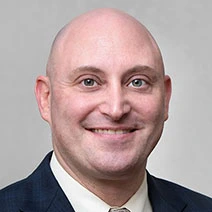Ghosting Is Now A Medical Trend
You may be familiar with the term ghosting — in general, this refers to a situation in which you are speaking with someone and they suddenly leave and never reach back out. While ghosting has become popular slang, it is now making its way into the medical field with ghost surgeries. A ghost surgery refers to a case where you speak with a specific surgeon. They work with you on your medical case and prep you for surgery. However, when it comes time to do the procedure, another surgeon steps in while you are out of it and unable to comment on it. Unfortunately, as a medical malpractice lawyer can share, this is becoming an increasingly alarming trend that you should be aware of — and you should know your rights in case it happens to you.

Examples of Ghost Surgeries
Surgeons work with a team of people to get the job done. However, as a patient you expect the surgeon to do the bulk of the work, particularly in extra complicated procedures. There have recently been some cases where the surgeons stepped aside and let unqualified assistants take over. A version of this can also happen in teaching hospitals. Students might be allowed to take over during a complex medical procedure without explicit consent given that it allows that to happen before the surgery takes place.
Another example of a situation where a ghost surgery might occur is if the surgeon has a scheduling conflict. Without your consent, they switch surgeons so that your original doctor can keep their schedule. All of this is done without your knowledge or consent, until it is too late and the procedure has been completed.
What To Do Before Surgery
As with any legal case, medical malpractice can be complicated depending on the paperwork you sign and what questions you ask as our friends at Cohen & Cohen know well. It is best to always read through everything presented to you at the hospital before signing. Ask questions on the paperwork, and if something does not seem right, do not sign it until you understand what is happening.
With regards to questions, you should ask things such as:
- Who will be performing my procedure?
- Will anyone else at any time step in other than the surgeon?
- What are the qualifications of everyone on the team?
- What is the plan if there is a scheduling conflict?
Protect Your Rights from Ghosting Surgeons
If you discover that your surgeon ghosted you during a medical procedure, this can lead to lasting consequences for your physical and mental health. On the physical side of things, the procedure may not have been completed to the best extent leading to complications and even the possibility of having to redo the entire surgery. On the mental health side of things, it can lead to trust problems and extreme anxiety around medical procedures — not to mention possible depression if the procedure goes horribly wrong.
Being ghosted during surgery is not only unethical, but in most cases it is illegal if you did not give express consent for someone other than your surgeon to perform the medical procedure. If this has happened to you, reach out to a lawyer near you immediately for help. They will review your case and ensure that your rights are protected.

